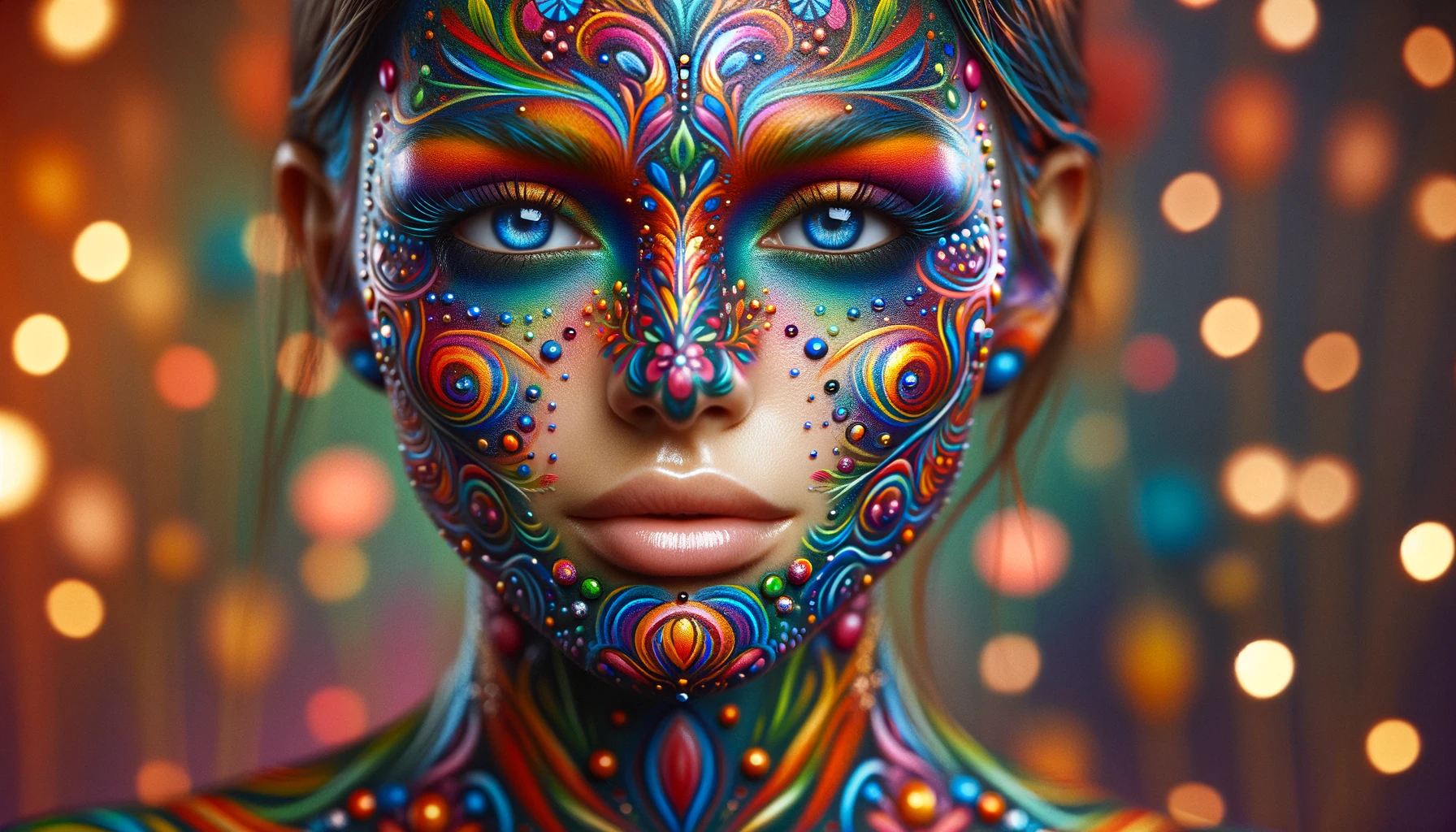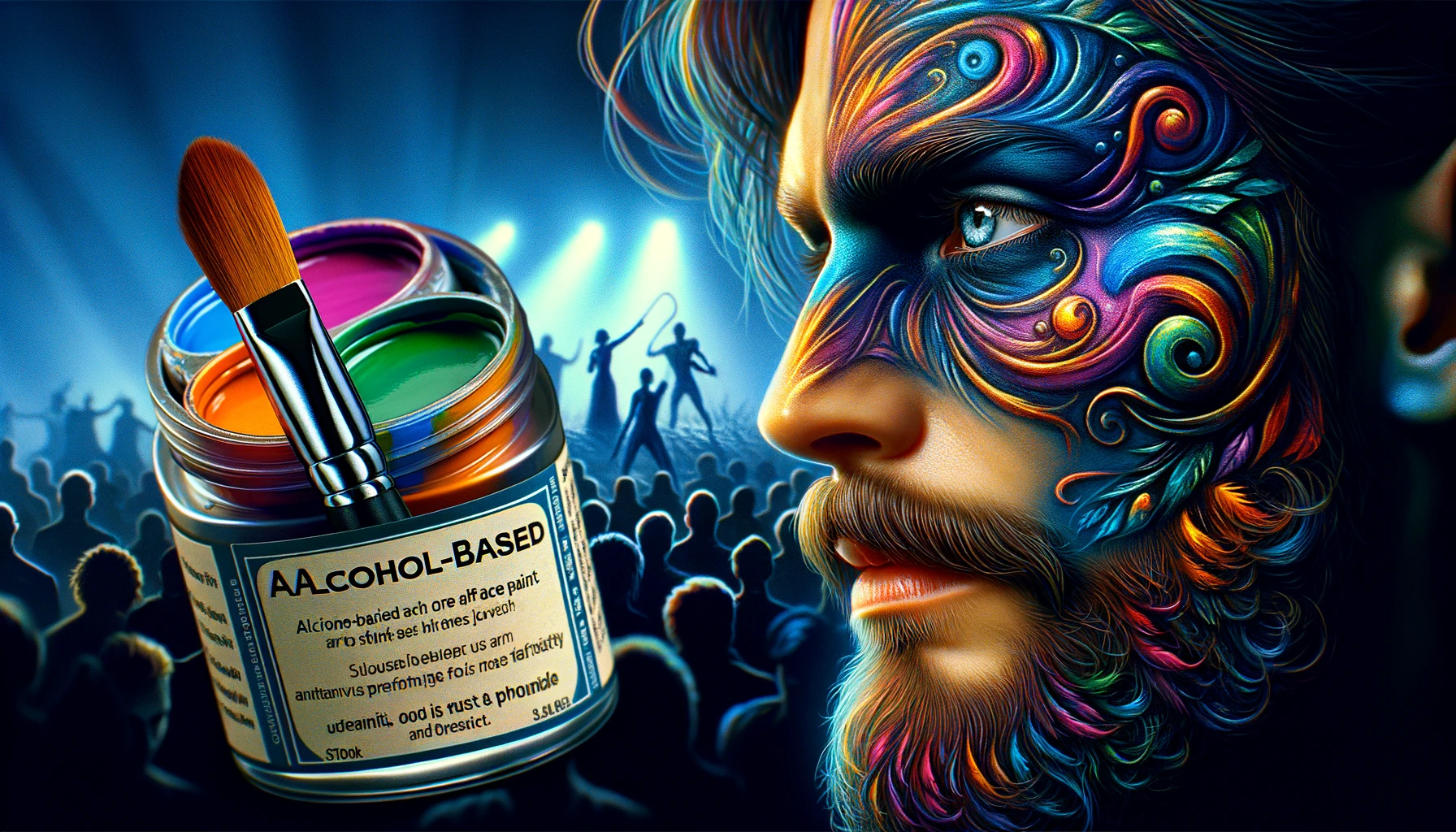Ever wondered how long that vibrant splash of color on your face will last before it starts fading away or smudging? Whether you’re gearing up for a costume party, a festival, or just want to have some fun with the kids, understanding the lifespan of face paint on your skin can help you maximize the fun without the worry.
The Basics of Face Paint Durability
Before we jump into how long does face paint last on your face, it’s worth noting that not all face paints are created equal. The longevity of face paint on your skin hinges on several factors, from the type of paint you’re using to how you’ve prepared your skin beforehand.
Types of Face Paint
1. Water-Based Face Paint
When it comes to dressing up, whether for a costume party or a kids’ birthday bash, Water-Based Face Paint stands out as a common and user-friendly choice. Its ease of application and removal certainly adds to the convenience, allowing for quick transformations without much fuss.
However, this convenience comes with a trade-off in durability. Typically, you can expect water-based face paint to last about a few hours before it begins to fade or smudge. It’s a reminder of the ephemeral nature of art and celebration, echoing the fleeting moments of joy these occasions bring. Yet, this doesn’t deter its popularity, as the ease with which it can be applied and later washed away makes it a go-to option for many.

2. Oil-Based Face Paint
When it comes to oil-based face paints, their staying power is nothing short of impressive. Designed to be resistant to both sweat and water, these paints can easily last the entire day without a hitch. However, this durability comes with its own set of challenges, especially when it’s time for removal.
From personal experience, taking off oil-based face paint requires a bit more effort compared to its water-based counterparts. You’ll find yourself reaching for oil-based makeup removers or cleansing balms to effectively dissolve the paint without irritating your skin.

3. Alcohol-Based Face Paint
When it comes to face paints that champion longevity, alcohol-based options are in a league of their own. Designed to withstand whatever the day throws at you, from sweat to unexpected water splashes, they’re the go-to choice for anyone needing their look to stay put well over 24 hours.
My personal favorite for both professional use and high-energy events, these paints have seen me through back-to-back performances in theater and demanding film shoots, where retouching simply isn’t an option.
Their resilience in the face of everything from bright lights to high humidity makes them a trusted ally for anyone in the performing arts or those who simply demand the best from their makeup.

Skin Preparation: A Key Factor
When it comes to face paint, ensuring it lasts through your artistic endeavors requires a bit more than just slapping on some color. Skin preparation, or prep, plays a crucial role in the longevity of your painting. Think of your skin as a canvas; for best results, it needs to be clean, dry, and free from oils and makeup.
This is where the magic of primer and barrier spray comes into play. They act not just as a protective layer but also extend the wear of the face paint, much like a good undercoat does for a wall before painting. The type of products you use for skin prep can significantly influence how vibrant and lasting your face paint masterpiece turns out to be.
From personal experience, taking the time for thorough skin prep has always made a world of difference, ensuring that my face paint not only looks stunning but also stands the test of time and activity.
Enhancing Face Paint Longevity
Want to make sure your face paint lasts as long as possible? Here are some tips and tricks to keep your face art looking fresh.
1. Setting the Scene
- Primer: Apply a light layer of primer to create a smooth base.
- Barrier Spray: A quick spritz of barrier spray can seal the paint in place.
2. Application Techniques
- Thin Layers: Build color with thin layers, allowing each to dry before adding another.
- Powdering: For oil-based paints, setting the paint with a translucent powder can help lock the color in place.
3. Maintenance Tips
- Avoid Touching: It’s tempting, but try to keep your hands off your painted face.
- Steer Clear of Water: Water-based paints, in particular, are vulnerable to water. Keep a dry face for as long as you need the paint to stay put.
When It’s Time to Say Goodbye
In the world of colorful expressions and artistic endeavors, face paint stands as a vibrant testament to creativity. But, like all good things, they must eventually end. Recognizing when it’s time to remove the masterpiece from your face is as important as the art itself.
Depending on the type of paint used, the method to remove it varies. For oil-based paints, which cling tenaciously to the skin, an oil-based makeup remover is your best bet to safely cleanse your skin without harsh scrubbing. On the flip side, water-based paints prefer a simpler approach, easily washing off with just soap and water.
Then there are the alcohol-based paints, requiring a special remover with alcohol to break down the paint effectively. Each type of paint and remover speaks to the temporary nature of face paint, ensuring that while the memories of your painted visage may last, the paint itself knows when it’s time to gracefully bow out.
Conclusion
When it comes to how long face paint will last on your face, there’s no one-size-fits-all answer. The duration depends heavily on the type of paint used, how you prepare your skin, and the ways you maintain the artwork.
With minimal effort, your design could fade in just a few hours, but with the right care and preparation, you could enjoy vibrant designs for the entire day or even beyond. It’s like your face becomes a canvas that you don’t worry about refreshing constantly.
From personal experience, taking the time to properly prepare the skin and using quality paint can make all the difference. You need to treat your face paint with the same care you would any other piece of art.
